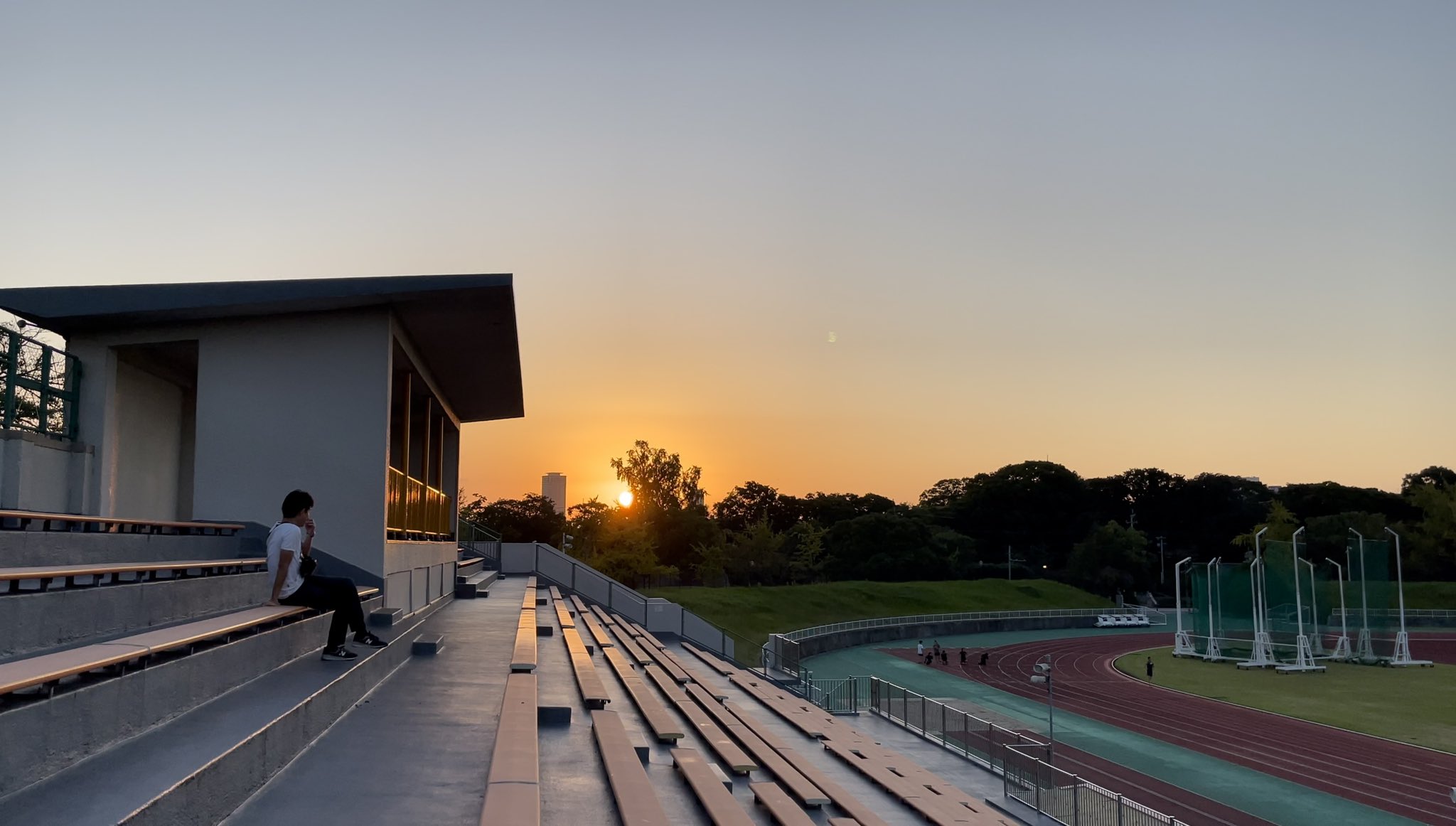In 1950 Heita Okabe, who laid the foundation for modern Japanese sports, proposed the creation of an Olympic development program to Shizo Kanakuri, the father of Japanese marathoning. Tanaka was one of the program's original members. In an era of shortages in the basic necessities of life, Tanaka packed a backpack with rice and a blanket and traveled from Hiroshima to Fukuoka. The program's first session took place at Heiwadai Field and neighboring Ohori Park. Under Okabe and Kanakuri's direction he and the other participants gained strength doing interval training, which had not been a part of Japanese methodology up to that point.
Tanaka ran the 4th Asahi Marathon, the original incarnation of the Fukuoka International Marathon, in Hiroshima in 1950. He finished 10th despite still being in high school. "That gave me confidence," he said. With that confidence he won the Boston Marathon the next year. He later ran the Asahi Marathon's 9th and 10th editions in Fukuoka and Nagoya, and after his retirement he became chairman of the National Marathon Federation founded by Kanakuri.
Before the pandemic began, Tanaka went to the Fukuoka International Marathon every year, paying his respects to the statue of Okabe at the entrance to Heiwadai Field and holding a memorial for Kanakuri to which he would invite people from the Japanese athletics world. "Heiwadai Field and Fukuoka's marathon were my starting point and are my personal treasures," he said. "It is incredibly sad that the race is to be no more. But I hope that Heiwadai Field will continue to be home to runners who will go on to success around the world." Watching on TV as Japan's marathoners circled that historic track one last time, tears rolled down Tanaka's cheeks.
translated by Brett Larner
Tanaka photo c/o Digital Commonwealth, © 1951 Leslie Jones, all rights reserved
other photos © 2021 Brett Larner, all rights reserved




Comments